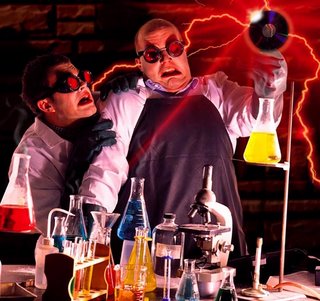
The emperor has no clothes, so says Peter Woit who is "taking on the interest of the whole scientific establishment" in NOT EVEN WRONG: The Failure of String Theory and the Continuing Challenge to Unify the Laws of Physics.
String theory, which nowadays dominates the research programmes and main funding of theoretical physics in many western universities (at a recent conference in Cambridge some 440 of them gathered to discuss their subject), was not so much discovered as invented in order to solve a vexing explanatory deficit.... But is string theory true? Peter Woit, a mathematician at Columbia University, has challenged the entire string-theory discipline by proclaiming that its topic is not a genuine theory at all and that many of its exponents do not understand the complex mathematics it employs. String theory, he avers, has become a form of science fiction.... Woit has taken on a group of the smartest minds in the world and told them that their intellectually imperial pretensions are naked. [I like that phrase, "intellectually imperial pretensions", it well describes a lot of the claptrap that has been issuing from the mouths and keyboards of "experts" these days.] [...]In his view, string theory offers no foreseeable prospect of making predictions, a crucial criterion for any theory worthy of the name. Matching the theory with the way we see the world, he argues, depends on believing in sixseveral tiny unobserved spatial dimensions wrapped around each other. Hence there is an infinite number of possible choices as to how one would make predictions, and nobody knows how to determine which choice is correct. The objection invokes the late Karl Popper’s widely accepted definition of science. An explanation is scientific, according to Popper, only if it can be used to make predictions of a kind that can be falsified: in other words, can be checked to be right or wrong.
Woit’s second main objection is that string theory offers no possibility of producing experimental evidence. Even the proposed prodigiously expensive class of accelerators known as Superconducting Super Colliders (SSCs), he claims, would have failed to provide the merest clue as to whether the theory had merit....
Woit’s most compelling accusation, however, is that the domination of string theory in universities has stifled progress in alternative research programmes within theoretical physics. As long as the leadership of the physics community refuses to accept that string theory is a “failed project”, he writes, “there is little likelihood of new ideas finding fertile ground in which to grow”.
Finally, and most devastatingly, he follows the lead of the science writer John Horgan, who suggested in his controversial book, The End of Science (1996), that, having reached their limit, some areas of science are in danger of becoming what he terms “ironic science”. In a passage of ultimate insult, Woit unpacks this notion further, suggesting that theoretical physics has become like the deconstructionist realms of literary criticism in the 1970s, which disappeared up its own fundament, “incapable of ever converging on the truth”.
Read the whole thing here.
For some time now there has been a building crisis of scientific authority, one which is widely denied by the grey eminences of the enterprise and of which the general public is largely unaware as we turn over more and more of the decision-making in our lives and politics to credentialed "experts." This is a dangerous thing -- far more so than the chimera of "theocracy" invoked by those who advance and defend scientism in its starkest form.
I wonder if the string theorists will be subjected to the same degree of public and professional scorn as the advocates of Intelligent Design?
Nah! Not a chance!
No comments:
Post a Comment